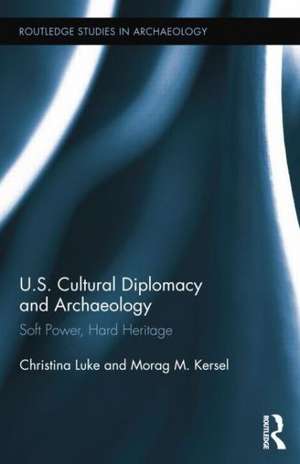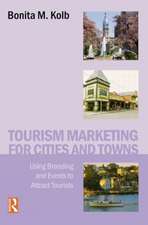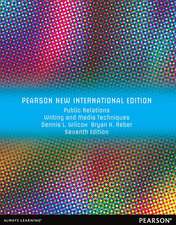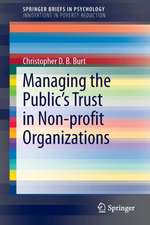US Cultural Diplomacy and Archaeology: Soft Power, Hard Heritage: Routledge Studies in Archaeology
Autor Christina Luke, Morag Kerselen Limba Engleză Paperback – 10 noi 2014
Archaeology forms a critical part of the U.S. State Department’s diplomatic toolkit. Many, if not all, current U.S.-sponsored and directed archaeological projects operate within U.S. diplomatic agendas. U.S. Cultural Diplomacy and Archaeology is the first book to evaluate museums and their roles in presenting the past at national and international levels, contextualizing the practical and diplomatic processes of archaeological research within the realm of cultural heritage. Drawing from analyses and discussion of several U.S. governmental agencies’ treatment of international cultural heritage and its funding, the history of diplomacy-entangled research centers abroad, and the necessity of archaeologists' involvement in diplomatic processes, this seminal work has implications for the fields of cultural heritage, anthropology, archaeology, museum studies, international relations, law, and policy studies.
| Toate formatele și edițiile | Preț | Express |
|---|---|---|
| Paperback (1) | 480.62 lei 6-8 săpt. | |
| Taylor & Francis – 10 noi 2014 | 480.62 lei 6-8 săpt. | |
| Hardback (1) | 1110.81 lei 6-8 săpt. | |
| Taylor & Francis – 20 dec 2012 | 1110.81 lei 6-8 săpt. |
Din seria Routledge Studies in Archaeology
- 18%
 Preț: 643.87 lei
Preț: 643.87 lei -
 Preț: 310.22 lei
Preț: 310.22 lei -
 Preț: 326.26 lei
Preț: 326.26 lei -
 Preț: 342.68 lei
Preț: 342.68 lei -
 Preț: 309.65 lei
Preț: 309.65 lei - 26%
 Preț: 766.16 lei
Preț: 766.16 lei - 18%
 Preț: 1108.37 lei
Preț: 1108.37 lei -
 Preț: 384.59 lei
Preț: 384.59 lei -
 Preț: 483.49 lei
Preț: 483.49 lei - 30%
 Preț: 822.76 lei
Preț: 822.76 lei -
 Preț: 389.38 lei
Preț: 389.38 lei - 25%
 Preț: 773.99 lei
Preț: 773.99 lei - 18%
 Preț: 1062.62 lei
Preț: 1062.62 lei -
 Preț: 423.30 lei
Preț: 423.30 lei -
 Preț: 383.50 lei
Preț: 383.50 lei -
 Preț: 388.34 lei
Preț: 388.34 lei -
 Preț: 383.50 lei
Preț: 383.50 lei - 18%
 Preț: 1108.42 lei
Preț: 1108.42 lei - 18%
 Preț: 1064.70 lei
Preț: 1064.70 lei -
 Preț: 389.38 lei
Preț: 389.38 lei - 18%
 Preț: 1059.14 lei
Preț: 1059.14 lei - 18%
 Preț: 1113.16 lei
Preț: 1113.16 lei - 18%
 Preț: 1114.70 lei
Preț: 1114.70 lei -
 Preț: 492.54 lei
Preț: 492.54 lei - 18%
 Preț: 1109.18 lei
Preț: 1109.18 lei - 25%
 Preț: 769.55 lei
Preț: 769.55 lei -
 Preț: 469.34 lei
Preț: 469.34 lei - 25%
 Preț: 767.89 lei
Preț: 767.89 lei - 18%
 Preț: 1072.71 lei
Preț: 1072.71 lei - 25%
 Preț: 770.62 lei
Preț: 770.62 lei - 25%
 Preț: 823.99 lei
Preț: 823.99 lei -
 Preț: 388.72 lei
Preț: 388.72 lei - 21%
 Preț: 256.87 lei
Preț: 256.87 lei - 18%
 Preț: 1060.52 lei
Preț: 1060.52 lei -
 Preț: 434.63 lei
Preț: 434.63 lei -
 Preț: 485.46 lei
Preț: 485.46 lei
Preț: 480.62 lei
Nou
Puncte Express: 721
Preț estimativ în valută:
91.98€ • 95.67$ • 75.93£
91.98€ • 95.67$ • 75.93£
Carte tipărită la comandă
Livrare economică 15-29 aprilie
Preluare comenzi: 021 569.72.76
Specificații
ISBN-13: 9781138825260
ISBN-10: 1138825263
Pagini: 170
Ilustrații: 5 black & white tables
Dimensiuni: 152 x 229 x 10 mm
Greutate: 0.25 kg
Ediția:1
Editura: Taylor & Francis
Colecția Routledge
Seria Routledge Studies in Archaeology
Locul publicării:Oxford, United Kingdom
ISBN-10: 1138825263
Pagini: 170
Ilustrații: 5 black & white tables
Dimensiuni: 152 x 229 x 10 mm
Greutate: 0.25 kg
Ediția:1
Editura: Taylor & Francis
Colecția Routledge
Seria Routledge Studies in Archaeology
Locul publicării:Oxford, United Kingdom
Public țintă
Postgraduate and UndergraduateCuprins
1. Introduction: Archaeology and U.S. Cultural Diplomacy 2. The Tea Circuit: Foreign Centers, Archaeology, and U.S. Cultural Policy 3. Archaeological Permits and Hostage Objects 4. Hard Borders, Soft Loans 5. Securing Heritage: The Hard Power Approach 6. Ambassadors Fund for Cultural Preservation 7. Lessons Learned: The Future of Cultural Relations and Archaeology Notes References Index
Recenzii
"Such a methodological approach, richly supported by experience, multi-archival primary sources, and cross-disciplinary connections, provides theoreticians, students, and practitioners with a fuller understanding of "another element of the diplomatic toolkit." Summing Up: Highly recommended." – G. Donato, Bentley University, in CHOICE
"In archaeology it is impossible, no matter what your nationality or where you conduct research, to escape the fallout from US interventions. This book effectively charts those effects and future ramifications for host countries and researchers. It exposes our constitutive disciplinary inheritances and responsibilities for the future." – Lynn Meskell, Stanford University
"This book faces a double task. It has to show that archeology is relevant to the practice and understanding of American cultural diplomacy and it has to document exactly what that relevance is. Fortunately, the authors accomplish both tasks admirably...Christina Luke and Morgan M. Kersel know their subject” - Nicholas J. Cull, ID: International Dialogue
"In archaeology it is impossible, no matter what your nationality or where you conduct research, to escape the fallout from US interventions. This book effectively charts those effects and future ramifications for host countries and researchers. It exposes our constitutive disciplinary inheritances and responsibilities for the future." – Lynn Meskell, Stanford University
"This book faces a double task. It has to show that archeology is relevant to the practice and understanding of American cultural diplomacy and it has to document exactly what that relevance is. Fortunately, the authors accomplish both tasks admirably...Christina Luke and Morgan M. Kersel know their subject” - Nicholas J. Cull, ID: International Dialogue
Descriere
Archaeology’s links to international relations are well known: launching and sustaining international expeditions requires the honed diplomatic skills of ambassadors. U.S. foreign policy depends on archaeologists to foster mutual understanding, mend fences, and build bridges. This book explores how international partnerships inherent in archaeological legal instruments and policies, especially involvement with major U.S. museums, contribute to the underlying principles of U.S. cultural diplomacy. Drawing from analyses and discussion of several U.S. governmental agencies’ treatment of international cultural heritage and its funding, the history of diplomacy-entangled research centers abroad, and the necessity of archaeologists' involvement in diplomatic processes, this seminal work has implications for the fields of cultural heritage, anthropology, archaeology, museum studies, international relations, law, and policy studies.
















